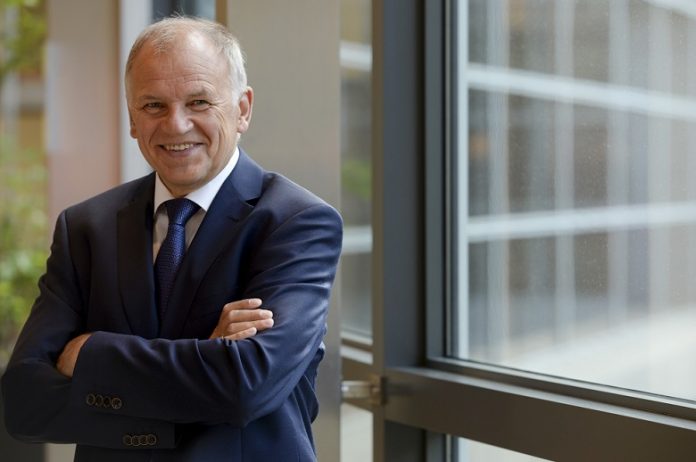In an exclusive article for AG, Vytenis Andriukaitis, EU Commissioner for Health and Food Safety highlights how eHealth has the potential to help Europe live healthier and longer…
Europe is turning increasingly silver. According to estimates, the number of people in the EU aged 65 and over is set to double between 1990 and 2050. However, although we are living longer, the number of years lived in good health remains unchanged – we spend on average over one fifth of our lives in poor health. Chronic diseases already account for 70% to 80% of healthcare costs in the EU. With an ageing population, rates of chronic diseases will continue to rise, putting a strain on the capacities and budgets of health systems in the 28 Member States.
Collaborating at EU-level to solve this common dilemma can reap benefits for all EU countries. Much can be achieved through sharing expertise and best practice and working together in collaborative projects and joint actions. However, we also need to go beyond the tried and tested – we need to support new, innovative solutions for health.
As a former medical doctor, I am fascinated with innovative solutions that are part of today’s medical toolbox, particularly digital solutions such as eHealth. The more I learn about eHealth, the more convinced I am that it can enable better health promotion, patient empowerment, independent living, and more efficient, sustainable and cost-effective healthcare systems.
The digital trend is growing in all aspects of our daily lives, as evidence by this publication. The growing digital revolution in health has led to new eHealth tools such as mobile health apps that motivate to keep us fit, inform us about screening and vaccination campaigns and remind us to take our medicine. Increasingly, patient’s electronic health records are shared between GPs and specialists in electronic form, and our consultations with health professionals take place over the internet.
In Europe, the interoperability of eHealth systems is the current pressing issue. The Directive on patients’ rights in cross-border healthcare established an eHealth Network, through which national authorities have been working together on a voluntary basis to establish common orientations in eHealth. The Network plays a central role in solving interoperability challenges between electronic health systems.
Two tangible results of collaboration through the eHealth Network are, patient summary guidelines and ePrescription guidelines, and both are a boost to patients’ safety. Patients can, as early as 2018 request to have a summary of their electronic health record when visiting another EU country. This means that if someone needs medical care while abroad, the doctor in the country of treatment has an electronic overview of the patient and his or her medical information. With ePrescriptions patients can get the medication they need anywhere in the EU, which is particularly important for people with chronic medical conditions.
The EU is also making a considerable financial investment to make sure that Europe’s eHealth systems can ‘speak’ to each other. The Connecting Europe Facility (CEF) is financing, amongst other things, the building of an EU digital infrastructure for eHealth. To date, 20 Member States have applied for funding under this project to build up concrete capacity to exchange health data, at first e-prescriptions and patient summaries.
Such EU collaboration and connectivity in the area of eHealth makes us all winners. It means savings and greater efficiency for our health systems, and healthier, more empowered and independent Europeans all along our life cycle. I am pleased to witness eHealth increasingly being used. I want to seize the opportunities offered by the emerging European Digital Market and ensure that we create an environment in which practical, innovative, and cost-effective eHealth solutions can thrive.
Vytenis Andriukaitis
EU Commissioner for Health and Food Safety
European Commission











